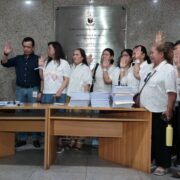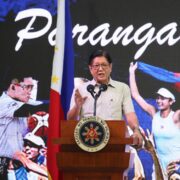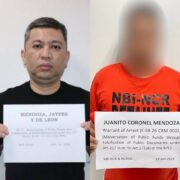Right to claim one’s property predicated on a forged document does not prescribe
“TIME and tide wait for no man,” said English poet Geoffrey Chaucer. Thus, Philippine law allows for prescription, where one may acquire ownership and other real rights, or lose rights and conditions, through the lapse of time.
Prescription as a mode of acquiring ownership does not absolutely apply, as recently found by the Supreme Court in Zamora v. Bagatsing, et al. This case involves land originally owned and registered to Spouses Rosita and Jesus Zamora (collectively, “Spouses Zamora”).
According to respondents Ramon, Jr., Rosarity, Reynaldo, and Marilyn Bagatsing (collectively, “Bagatsings”), Spouses Zamora donated their land to Zenaida Lazaro, their mother and Rosita’s aunt, by executing a deed of donation. After 24 years thereon, however, Rosita, who by then had survived Jesus, filed an affidavit of adverse claim, alleging that their signatures on the deed had been forged. Consequently, her claim was annotated on the title to the land, which was by then under Lazaro’s name.
Meanwhile, Lazaro executed a deed of sale of the subject land in favor of the Bagatsings. The corresponding title issued to the Bagatsings bore the annotation on Rosita’s claim, prompting them to file a petition for cancellation of annotation of adverse claim with the Regional Trial Court (RTC).
Rosita countered that she and Jesus had taken a loan and secured it with the subject land as mortgage. Lazaro supposedly offered to pay the loan to cancel the mortgage and redeem the land, as well as requested the owners’ duplicate copy of the title, to which Rosita obliged. When she checked her title, however, she discovered that it had been cancelled and a new title was issued in Lazaro’s name.
The RTC denied Bagatsings’ petition, finding that the deed of donation supposedly executed by Spouses Zamora and Lazaro was forged.
Upon appeal by the Bagatsings, the Court of Appeals reversed and set aside the RTC’s ruling and cancelled Rosita’s annotated adverse claim on the title. In so doing, the Court of Appeals found that Rosita’s right had already prescribed for failing to file an action for reconveyance within 10 years from the registration of the land in Lazaro’s name. This was despite its finding that Spouses Zamora’s signatures were on the deed of donation.
Upon appeal by Rosita, the Supreme Court reversed and set aside the Court of Appeals’ decision and reinstated the RTC’s decision. At the outset, it held that while the Court of Appeals properly tackled matters relating to prescription, which the Bagatsings had raised before it, it should not have ruled thereon based on the prescribed right to file an action for reconveyance.
While actions for reconveyance and annotation of adverse claim, which Rosita has initiated here, are reliefs available to the rightful owner of land which has been erroneously registered in another’s name, they have different purposes. An action for reconveyance seeks to compel the transfer of the land to the rightful owner, while that for the annotation of adverse claim aims to protect the interest of a person over a certain real property by giving notice to third persons that there is a controversy over its ownership. Moreover, an action for reconveyance may be filed with or without an adverse claim, while that for the cancellation of such annotation may only be filed with an adverse claim.
Moreover, even if the instant case was one for reconveyance, the Supreme Court finds that Rosita’s right to file it has not prescribed since it is predicated on a void and thus, imprescriptible, conveyance. To be sure, the Supreme Court has reiterated its previous rulings that a forged deed is a nullity and conveys no title, and that any transaction subsequently made thereto is likewise void.
In this case, as found by the RTC, the signatures of Spouses Zamora appearing on the deed of donation, have been forged, considering their distinct inconsistencies throughout the same document. Being forged, the purported donation is void, as well as the conveyances made after the donation, such as that from which the Bagatsings derive their title.















